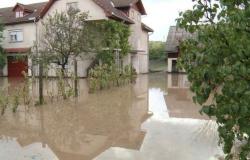Along with the show Bernarda Alba’s house, staged by the director Diana Mititelu at the Constanța State Theatre, the feminist discourse takes on a new militant dimension. According to this directorial vision, the position of inferiority of the woman is imposed freed not only from all the conditionings of the patriarchy, but also from those of the matriarchy that takes its place, when it takes its place. On such occasions, the matriarchy proves much more severe and ultimately murderous – a warning to those who flirt with male-to-female permutations just for the sake of the concentration experiment. It’s all the more reason to ditch gender identities and embrace gender theory as a guarantee of inclusiveness.
In the aseptic house of Bernarda Alba (scenography: Alexandra Budianu), only women live together under the same roof: a widowed wife, a mother-in-law (of the deceased), a maid and five daughters. It could happen in Spain, if we perceive the action from the perspective of the proposed onomastics, although the Iberian sonorities may be purely coincidental. Such a wasp’s nest could be located anywhere and anytime, where – and when – it appeared. On a more careful Freudian look, the Dudulence clan, but also Mam’ mare, mamma and aunt Mița, castrate par excellence, cannot be found One better company than that of the protagonists in Bernarda Alba’s House, like everywhere else where women It group into tribes of social status and respectability (sexual, in this case).
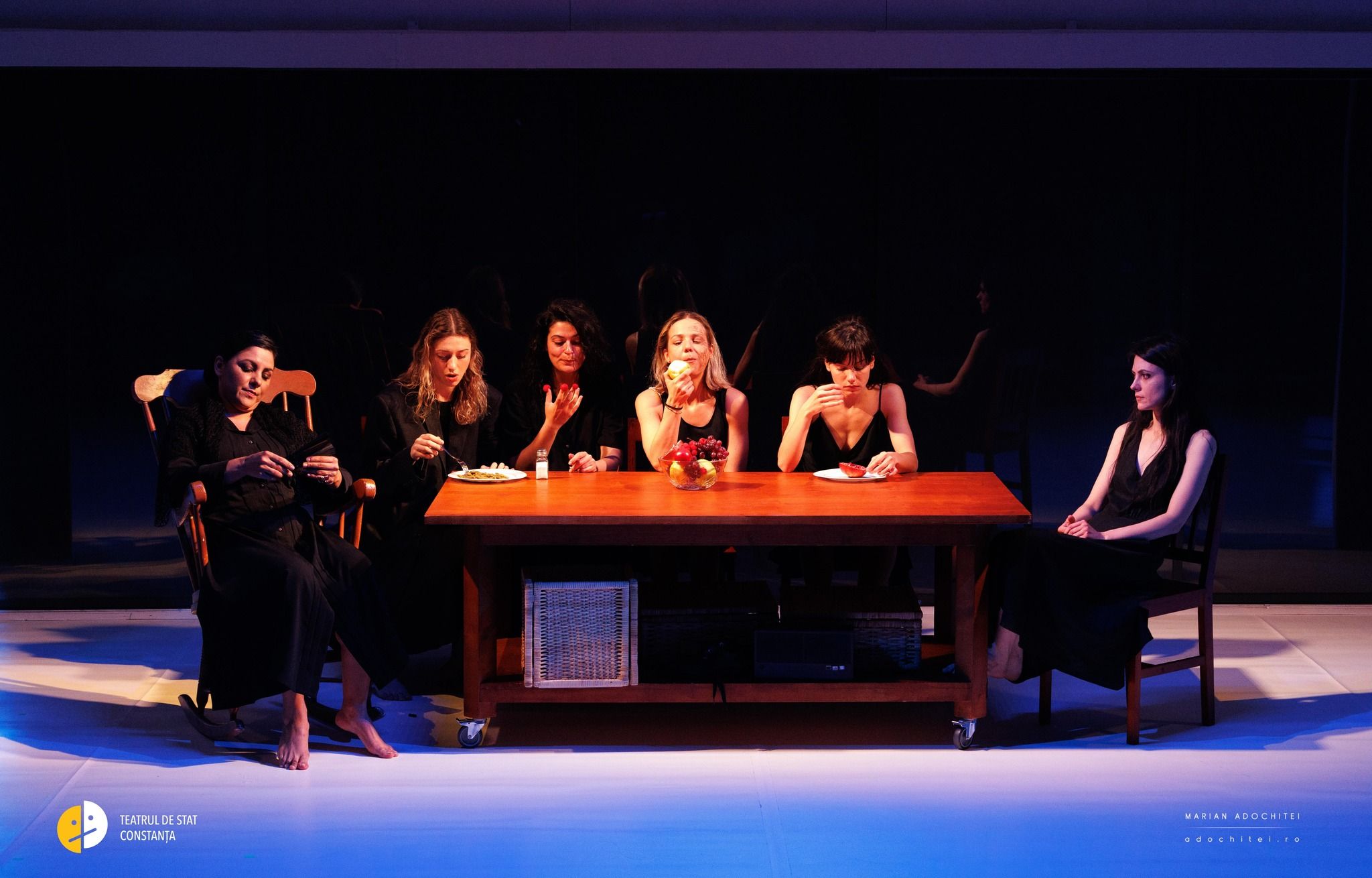




The company in which the dudulence gangs find themselves is not, however, a happy one. In the Iberian vision, the register of the action is a serious one, the action of the mounted play Taking place One dark, inquisitorial age, with timeless references to the idea of the fundamentalist veil and/or Byzantine cap. The widow of the house, still young, barely and led the man to the pit, in the eyes of a community with punitive instincts, directed above all against carnal sin. This community ends up lynching a woman guilty of infanticide and shows signs that it would tolerate the killing of an unfaithful fiancé if It it happened that he was driven out, with a carbine, by the amazon of the clan outraged at his respectability.
Matrona Alba barricades herself behind a total oxymoronic mourning, imposed with pretensions of absolutism and mature daughters, of which only four belong to the deceased husband, recently buried. The fifth daughter originates A previous marriage, a sign that Dona Alba is a black nun, of the entomological realm, devouring males after mating. She is the only one who has the nuptial blessing of marriage, which all the other protagonists yearn for, in the gynecology poisoned by strictness. The number of daughters indicates not so much great fertility as an impressive sexual activity of the mother – denied, with torturous delights, to her young daughters. What the mother knew is enough, and maternal jealousy requires that it be experienced only by this.
The widow’s mother, senile, although the only one who, for medical reasons, can avoid mourning, is in turn subject to the authority of her daughter, who, with senior powers, controls the whole universe of the house. The power of sexual desire has not died, however, even in the being with the lost minds, precisely for that reason it is kept under lock and key, with great strictness.
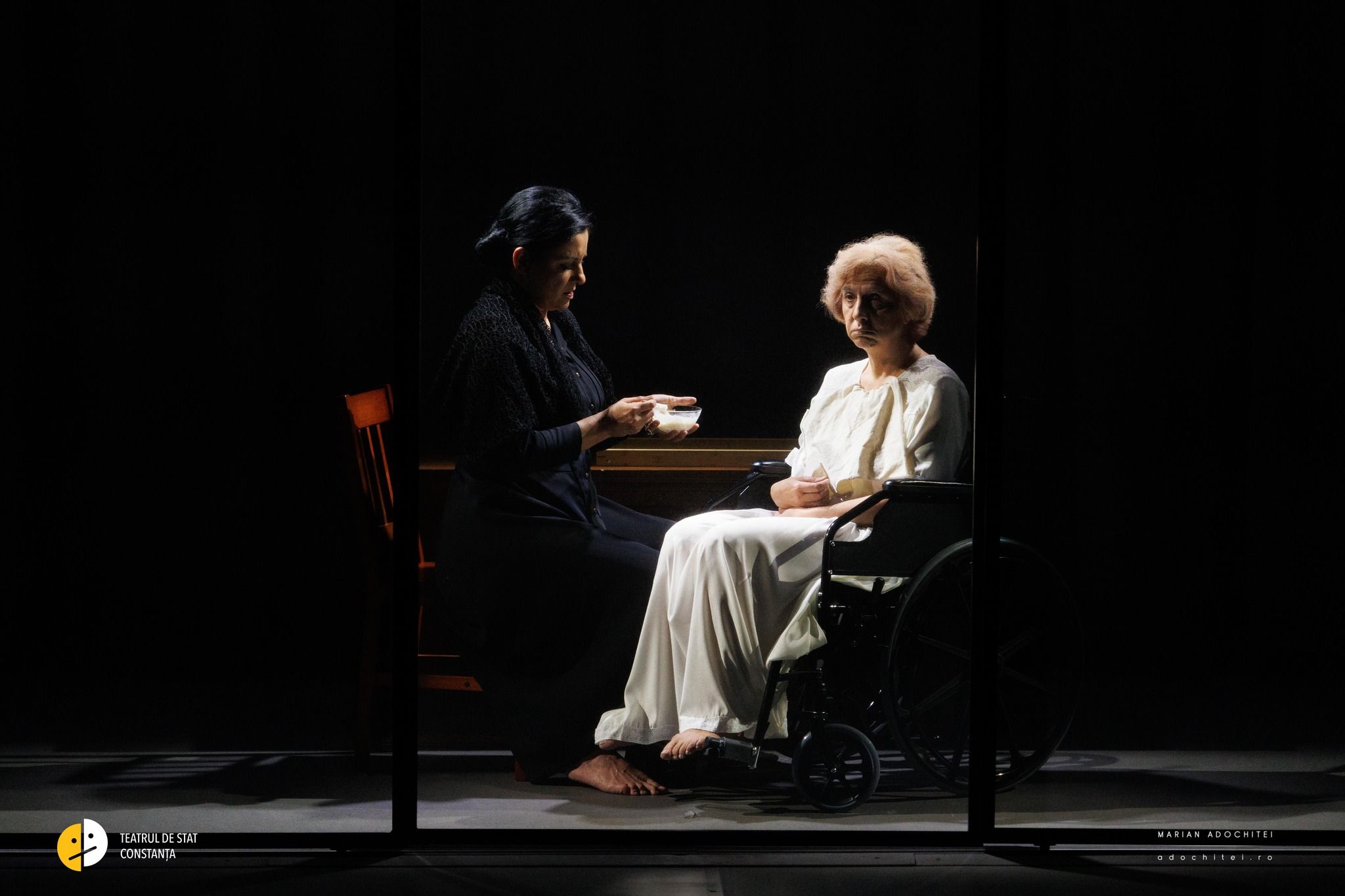
The mistress’s dictatorship also affects the destiny of the maid who maintains the order of the wealthy household, the occasion for a critical discourse about class and social hierarchies, as well as for open hatred towards rule and oppression.
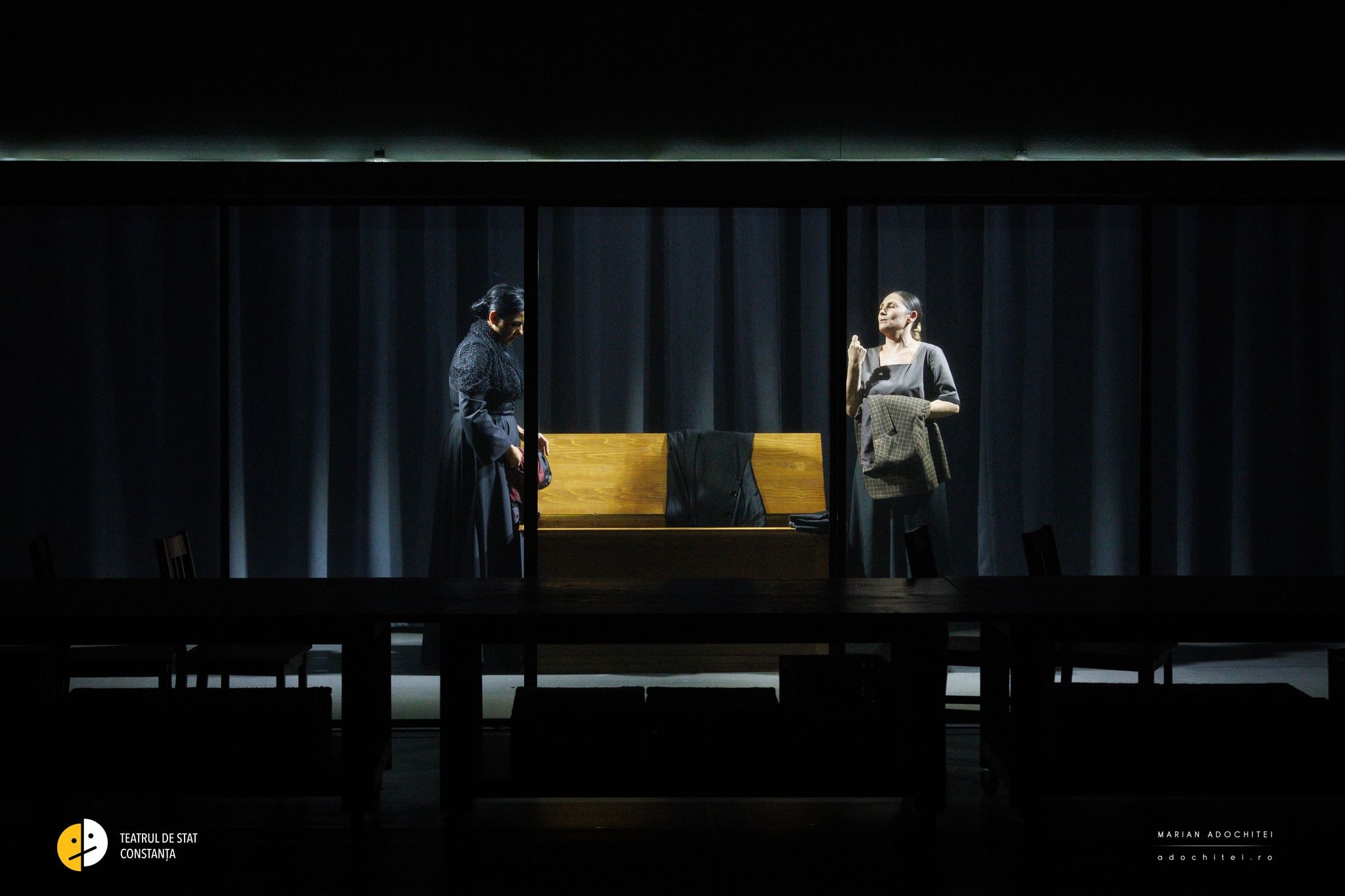
This whole camp of captive and screened women boils in the heat of a sweltering summer, but mostly under the pressure of their own repressed instincts, in the absence of a partner. The only one available is borrowed and exchanged for a virtual dildo, only to be gunned down in the end. His morganatic figure remains unseen and is only the spark of a conflict already smoldering between so many women.

The traditional system is questioned as the eternal author of traumas and copious lover of victims. In this particular case, by establishment sexually, the clan proves all the more suffocating. Some members become martyrs (Martirio), others sinful saints (Magdalena), others followers of existentialist philosophy (Angustias). Liberation from the prison space oscillates between sexual self-satisfaction and suicide, on the aesthetic chords of the Spanish Baroque and in the sonorities of Ranchi of Chavela Vargas.
The chiaroscuro of the living paintings (lighting design: Cristian Niculescu), in the background, accompanies the dark atmosphere, charged with a tragic vision of female existence. El Greco gets a dark visual homage. The Almodovarian coloring of the flowers is, however, alive in the austere crypt atmosphere of the stage, animated by a sthenic and convincing stage play of a team of splendid, highly performative nymphs, one of whose partners and it would be hard to choose just one. It’s the team of bad girls, young, eccentric and provocative, of the Constanța State Theatre. Applause.


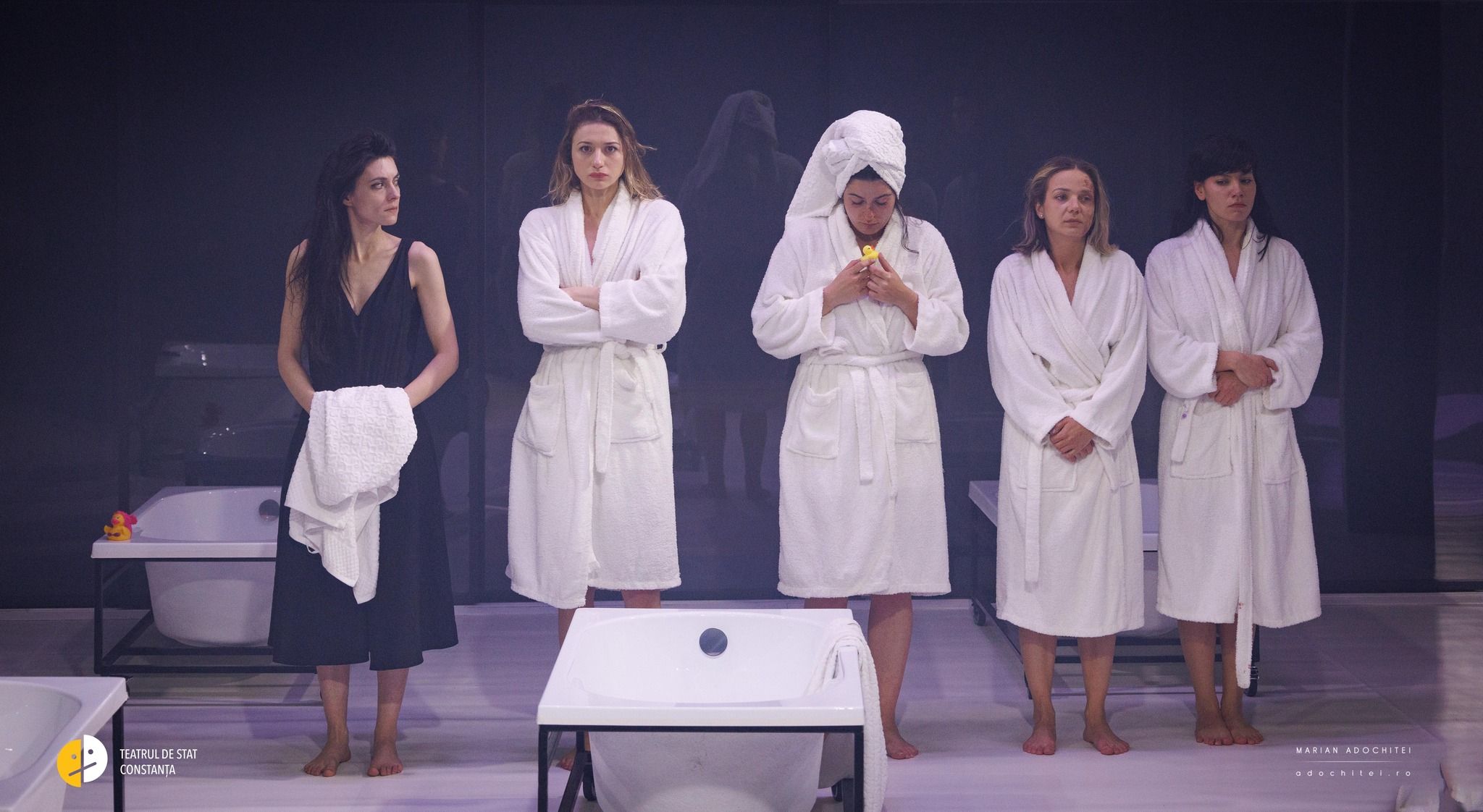
Cast: Bernarda Alba: Luiza Martinescu / La Poncia: Laura Iordan / Maria Josefa: Mirela Pană / Angustias: Alina Manțu / Magdalena: Cristiana Luca / Amelia: Otilia Nicoară / Martirio: Mihaela Velicu / Adela: Ecaterina Lupu
(Photo: Marian Adochiței)
Of: Federico García Lorca Director: Diana Mititelu With: Luiza Martinescu, Laura Iordan, Mirela Pană, Alina Manțu, Cristiana Luca, Otilia Nicoara, Mihaela Velicu, Ecaterina Lupu
-















